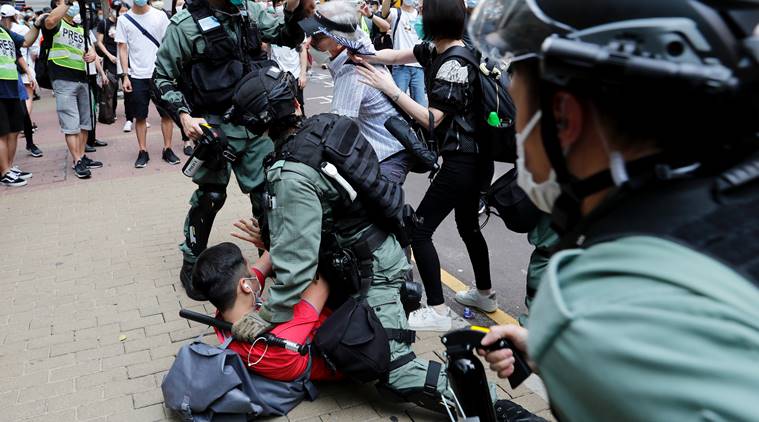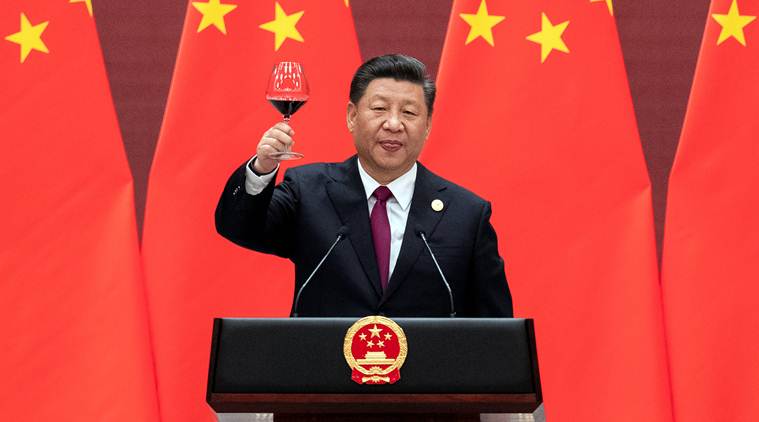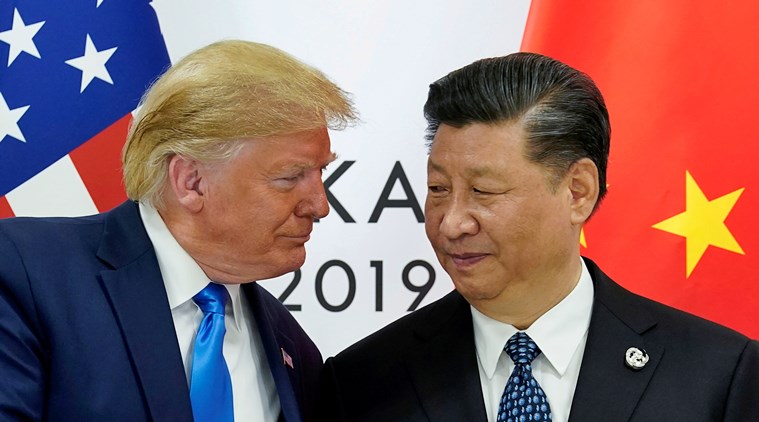
The Indian Express
Why China’s proposal for national security law is fueling protests in Hong Kong
At present China can't legally introduce laws in Hong Kong as per the Basic Law, but the national security bill seeks to allow Beijing to compel Hong Kong's government to enact laws. The new law will bypass the local legislature and ensure greater Chinese control on the island.
by Express Web DeskAlmost a year after Hong Kong witnessed widespread protests against an extradition bill proposed by China, the autonomous island is embroiled in yet another one against the Chinese mainland’s proposal for another legislation — the national security bill.
The Associated Press reported that an estimated 300 people have been arrested by the security forces Wednesday as protests raged against the national security law as well as an ‘Anthem Bill’ that would make it illegal to insult or abuse the Chinese national anthem in the semi-autonomous city.
How is Hong Kong a semi-autonomous Chinese city?
After the end of the First Opium War in 1842, Hong Kong was taken over by the British who ruled it as a colony till 1997 when the island attained independence from the British rule and was handed over to China with certain conditions — it was agreed to function as an autonomous territory (Hong Kong Special Administrative Region).

Under a unique agreement, Hong Kong was allowed to have a Constitution of its own which is also known as the ‘Basic Law’ and is governed on a principle commonly known as “one country, two systems”. The Basic Law protects certain freedoms for Hong Kong: freedom of assembly and speech, an independent judiciary and certain democratic rights. These are the freedoms that no other part of mainland China enjoys.
What is national security law that China has proposed?
The People’s Republic of China has submitted a draft resolution that would criminalise any attempt to break away from the country, any attempt to undermine the power or authority of the central government, using violence or intimidation against people and activities by foreign forces that allegedly interfere in Hong Kong’s affairs.

At present China can’t legally introduce laws in Hong Kong as per the Basic Law, but the national security bill seeks to allow Beijing to compel Hong Kong’s government to enact laws. The new law will bypass the local legislature and ensure greater Chinese control on the island.
What will be the economic, political fallout of China’s security law?
AP reported that business groups in the island city have suggested that the national security law can possibly hurt confidence in Hong Kong’s legal system and make it difficult to attract professionals from foreign countries.
Asked about possible US retaliation over the security legislation, Chinese foreign ministry spokesperson Zhao Lijian told AP in Beijing that China would take necessary steps to fight back against what he called ‘erroneous foreign interference’ in Hong Kong’s affairs.

The anti-China sentiment has been rising in Hong Kong since 2014 protests, known as the ‘Umbrella Revolution’, that stemmed from the Chinese government’s decision to allow direct election of the city leader only after it screened candidates. In the end, the plan for direct elections was also dropped like the extradition law.
What all happened today?
Thousands of protesters shouted pro-democracy slogans and insults at police in Hong Kong on Wednesday as lawmakers debated a bill criminalising abuse of the Chinese national anthem in the semi-autonomous city. Police massed outside the legislative building ahead of the session and warned protesters that if they did not disperse, they could be prosecuted. In the Central business district, police raised flags warning protesters to disperse before they shot pepper balls at the crowd and searched several people. More than 50 people in the Causeway Bay shopping district were rounded up and made to sit outside a shopping mall, while riot police with pepper spray patrolled and warned journalists to stop filming.
(With inputs from AP)